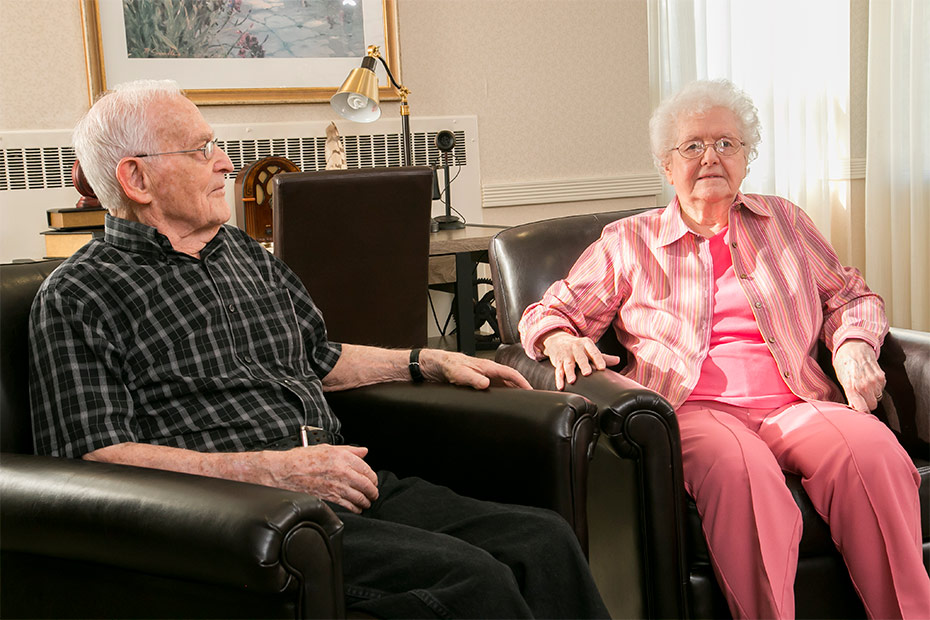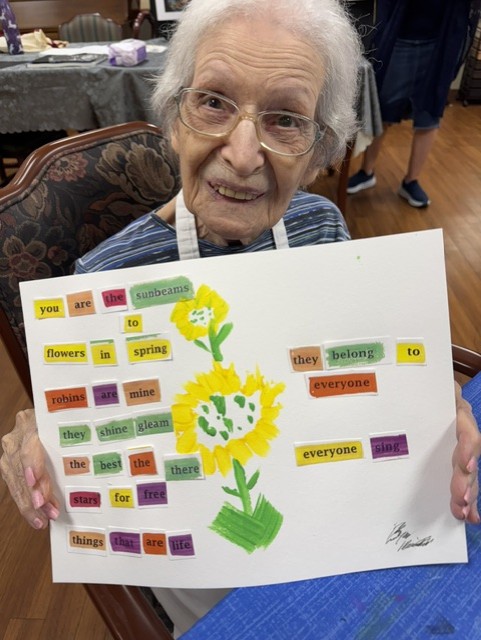One of the ongoing conversations that we will periodically share has to do with the language that we use when we talk about many things related to aging. We know that this world in which we all are aging is changing. Baby boomers do not talk like, look like or expect to be treated like the generations that have aged before them. One way to respect each generation’s aging perspectives is to change the words we use.
To this end, Amy Kotterman, UCH director of hospitality services, has been sharing a Word of the Week as a way for us to shape our own organization’s culture. She shares an “old” word and then offers a “new” one as a replacement. For instance, we don’t use the outdated term “skilled nursing facility” to talk about the 10 communities in our organization that provide services for residents. Instead, we refer to these communities as “senior living communities.” When we reference the medical aspect of care in these places, we prefer to use the term “healthcare.”
This changing language is not new. When our organization was first formed in century ago, the literature talked about the “inmates” when referencing those who chose to live in the first house! This reflected the cultural alternative of living in a poor house or even the county jail. “Inmate” gave way to “patient” as medical models became the latest and greatest trends.
Today the general trend is to move away from terms that come from sterile medical and hospital settings to words that are more focused on community and family settings. We don’t have “patients” living in our communities, but residents. We don’t have “units” in our buildings, but neighborhoods. Why? Because there are very few of us who would choose to live for extended periods of time in a place that is more institutional than it is “home-like.” The place that we call “home” needs to be a place where we belong, where we are safe, where our needs are met and where we contribute to the needs of the community. Words help to create and differentiate between these two very different concepts.
But this is just the tip of the iceberg. The reality is that most of us have an opinion about what we want to be called as we age. Tell someone in the baby-boom generation that they are elderly and see what response you get. Even those in the silent generation are not silent about their opinions: I had an 88-year-old relative tell me recently that he still wasn’t old, so don’t call him old! Another 84-year-old friend refuses to go to the senior center in town because she is not as old as those people!
Yes, there are people studying this dilemma of the language we use. And what are they discovering? The word “elderly” generally has negative connotations in today’s world. However, the word “elder” can be used in some instances. I would argue that this word has theological integrity in some circles, so it may be a positive word for those in the church.
A century ago, our organization officially was known as the Home for Aged People. I wouldn’t recommend using the word “aged” today. “Senior citizen” also is declining in popularity. But just using the word “senior” is viewed with less venom. And the term “older adult” may be more favorable. The reality is that there is no consensus. Thus, we are left with the awareness that we need to be respectful even in the vacuum of consensus.
And so, we begin the conversation about the words we use. We will continue to post and share observations along the way because we know the power of the words we use makes a difference in how we perceive one another, how we think about the aging process in general and how the world around us is formed.
10/16/17 19:12
View all articles by:






















